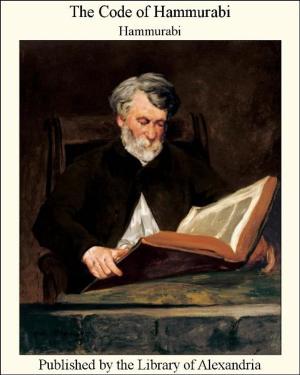| Author: | Brigham Leatherbee | ISBN: | 9781465608628 |
| Publisher: | Library of Alexandria | Publication: | March 8, 2015 |
| Imprint: | Language: | English |
| Author: | Brigham Leatherbee |
| ISBN: | 9781465608628 |
| Publisher: | Library of Alexandria |
| Publication: | March 8, 2015 |
| Imprint: | |
| Language: | English |
That Christianity, as to-day presented by the orthodox, is far different from the Christianity promulgated by the early fathers, few are so blinded as to doubt. Christianity, like all other religions, came not into the world full-grown, but from the simple conceptions of its early followers became gradually elaborated by the introduction of pagan forms and customs until it supplanted its early rivals and gave its adherents a compact and solid theology not very different from that of its predecessors. However, before considering the genealogy of Christianity, or its heirlooms from paganism, let us turn our attention to what were presumably the beginnings of the religious views of mankind. Probably the true source of that human characteristic which is defined as the religious instinct and which is supposed to be an elevating and moral agent, is to be found in the superstition which originated in fear of the unknown. The first ages of human life were so devoted to the animal needs that little attention was given to anything else, but later the craving for protection and help from some power greater than himself led primitive man to look about him for something to sustain and aid him in his struggle for existence. Surrounded by natural phenomena of which he could give no explanation satisfactory to his experience, he came to the conclusion that he was in an environment permeated with bodiless intelligences who governed these matters by supernatural power. Awed to fear by the inexplicable workings of nature, he sought to propitiate the spiritual agencies by bribes, and he did all things for them which he thought would be agreeable to them to keep them in good-natured interest or indifference toward him. And, naturally, he considered that what would be pleasing to himself would be pleasing to them. Therefore, his offerings and his conduct towards these spirits were such as he would have desired shown toward himself. Death and its imitation, sleep, being the greatest mysteries confronting him, he naturally began to consider the spirits of the dead, with whom he seemed to have intercourse in his dreams, as being influential factors in his career; and thus originated ancestor-worship with its highly-developed rites and sacrifices, which in a modified form still exists in the Roman church in the practice of reading masses for the souls of the dead. At the same time, noticing the great benefits derived from the warmth of the sun, to whose rays he owed his subsistence and whose glorious and awful presence was constantly before him, man began to feel grateful to that mighty power which was the source of all his welfare, and, appreciating that all terrestrial life depended upon it, he came to recognize it as the great creative power.
That Christianity, as to-day presented by the orthodox, is far different from the Christianity promulgated by the early fathers, few are so blinded as to doubt. Christianity, like all other religions, came not into the world full-grown, but from the simple conceptions of its early followers became gradually elaborated by the introduction of pagan forms and customs until it supplanted its early rivals and gave its adherents a compact and solid theology not very different from that of its predecessors. However, before considering the genealogy of Christianity, or its heirlooms from paganism, let us turn our attention to what were presumably the beginnings of the religious views of mankind. Probably the true source of that human characteristic which is defined as the religious instinct and which is supposed to be an elevating and moral agent, is to be found in the superstition which originated in fear of the unknown. The first ages of human life were so devoted to the animal needs that little attention was given to anything else, but later the craving for protection and help from some power greater than himself led primitive man to look about him for something to sustain and aid him in his struggle for existence. Surrounded by natural phenomena of which he could give no explanation satisfactory to his experience, he came to the conclusion that he was in an environment permeated with bodiless intelligences who governed these matters by supernatural power. Awed to fear by the inexplicable workings of nature, he sought to propitiate the spiritual agencies by bribes, and he did all things for them which he thought would be agreeable to them to keep them in good-natured interest or indifference toward him. And, naturally, he considered that what would be pleasing to himself would be pleasing to them. Therefore, his offerings and his conduct towards these spirits were such as he would have desired shown toward himself. Death and its imitation, sleep, being the greatest mysteries confronting him, he naturally began to consider the spirits of the dead, with whom he seemed to have intercourse in his dreams, as being influential factors in his career; and thus originated ancestor-worship with its highly-developed rites and sacrifices, which in a modified form still exists in the Roman church in the practice of reading masses for the souls of the dead. At the same time, noticing the great benefits derived from the warmth of the sun, to whose rays he owed his subsistence and whose glorious and awful presence was constantly before him, man began to feel grateful to that mighty power which was the source of all his welfare, and, appreciating that all terrestrial life depended upon it, he came to recognize it as the great creative power.















